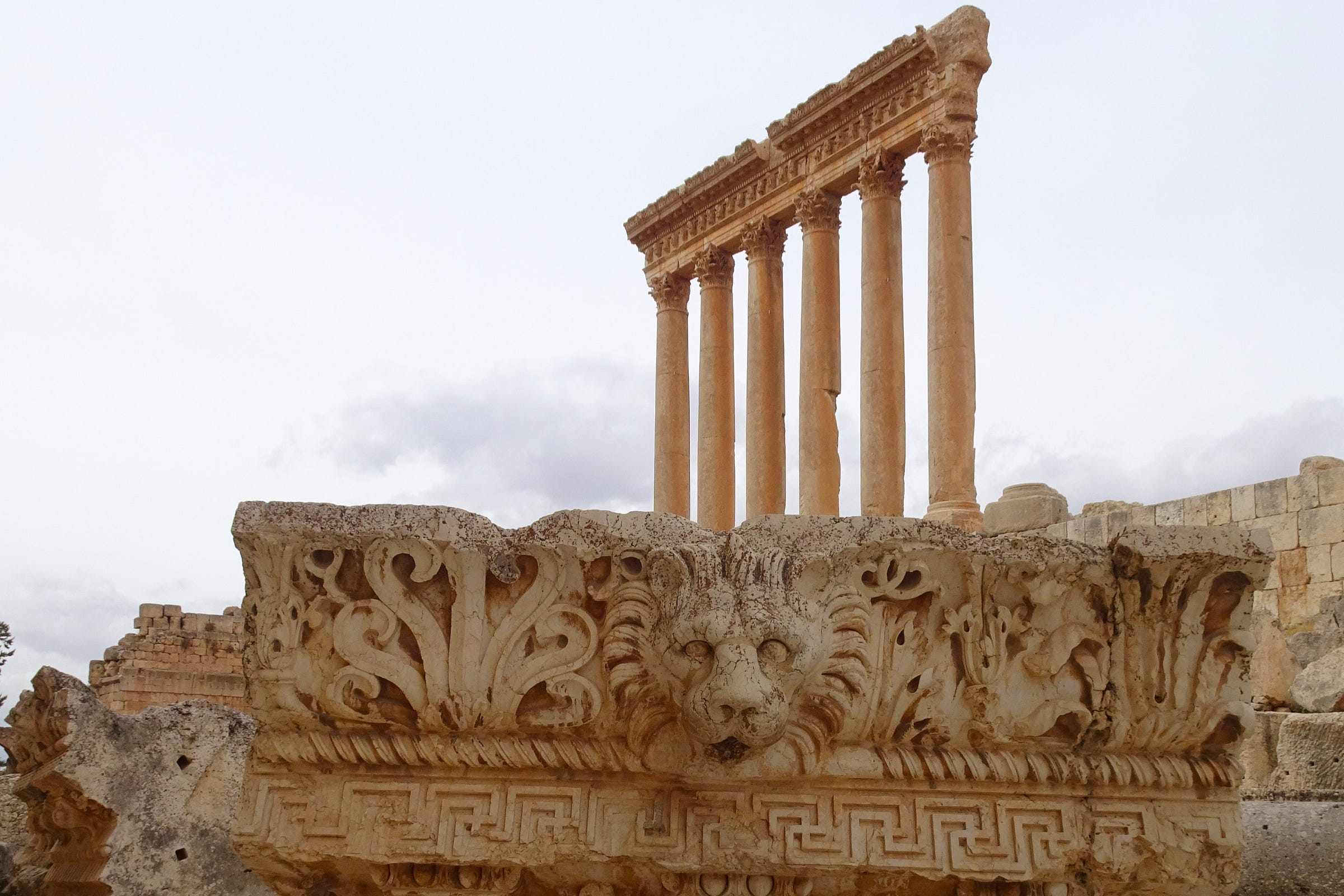Unsettling Advent 2024, Day 20
“In those days Caesar Augustus issued a decree that a census should be taken of the entire Roman world. … ‘Today in the town of David a Savior has been born to you; he is the Messiah, the Lord.’” (Luke 2:1,11)
During a trip to Lebanon last year, I visited the Roman ruins of Baalbek in Hezbollah-controlled territory in the eastern part of the nation near the Syrian border. It’s a magnificent site that received mentions from numerous writers in the time of Jesus and the decades that followed.
The Temple of Jupiter, which they started building while Jesus was young and finished during the time of Paul’s ministry, became the largest in the Roman world. Today, six of its main pillars stand high above other parts of the temple’s ruins. Stretching over 65 feet tall and at the highest place in the complex, they dominate the landscape.
The nearby Temple of Bacchus was smaller, but it’s one of the best preserved and largest Roman temple ruins — even bigger and better preserved than the Parthenon in Athens. Other smaller temples can also be found at Baalbek, like those of Venus and Mercury.
Proud of this city and its temples, the Romans showed it off on various coins. It became a famous pilgrimage site in the empire. And then earthquakes, wars, and rumors of war left it in ruins. Empires rise and fall — and Lebanon is littered with them.

The Caesars believed military might and architectural grandeur proved their divinity. The biblical writer Luke made that contrast, placing Jesus’s birth in the shadow of Caesar Augustus. Luke also used titles commonly given to Augustus to instead describe this baby: Lord, Son of God, and Savior who brought peace to the world. Luke’s story is not just cute platitudes; it’s a loaded political statement.
Even as grand and celebrated as the Temple of Jupiter was in the Roman world, it lies in ruins — unused for centuries longer than it functioned. Roman emperors visited that site to gain “insights” as they sought to hold onto power. But the empire fell. Others ruled and also lost that land, including the Byzantine Empire, Fatimid Empire, Seljuk Empire, Ottoman Empire, France, and Syria. All empires fall.
More recently, Israel used “Made in America” weapons to launch airstrikes on the modern city of Baalbek that sits next to the Roman ruins. Smoke from the blasts drifted over the old temples, which weren’t damaged in the deadly attacks. But as the ruins testify, even empires that seem mighty won’t last. Luke gave us that angelic proclamation 2,000 years ago. And it’s good news … unless you’re Caesar.
Brian Kaylor is president & editor-in-chief of Word&Way and co-author of Baptizing America: How Mainline Protestants Helped Build Christian Nationalism.

